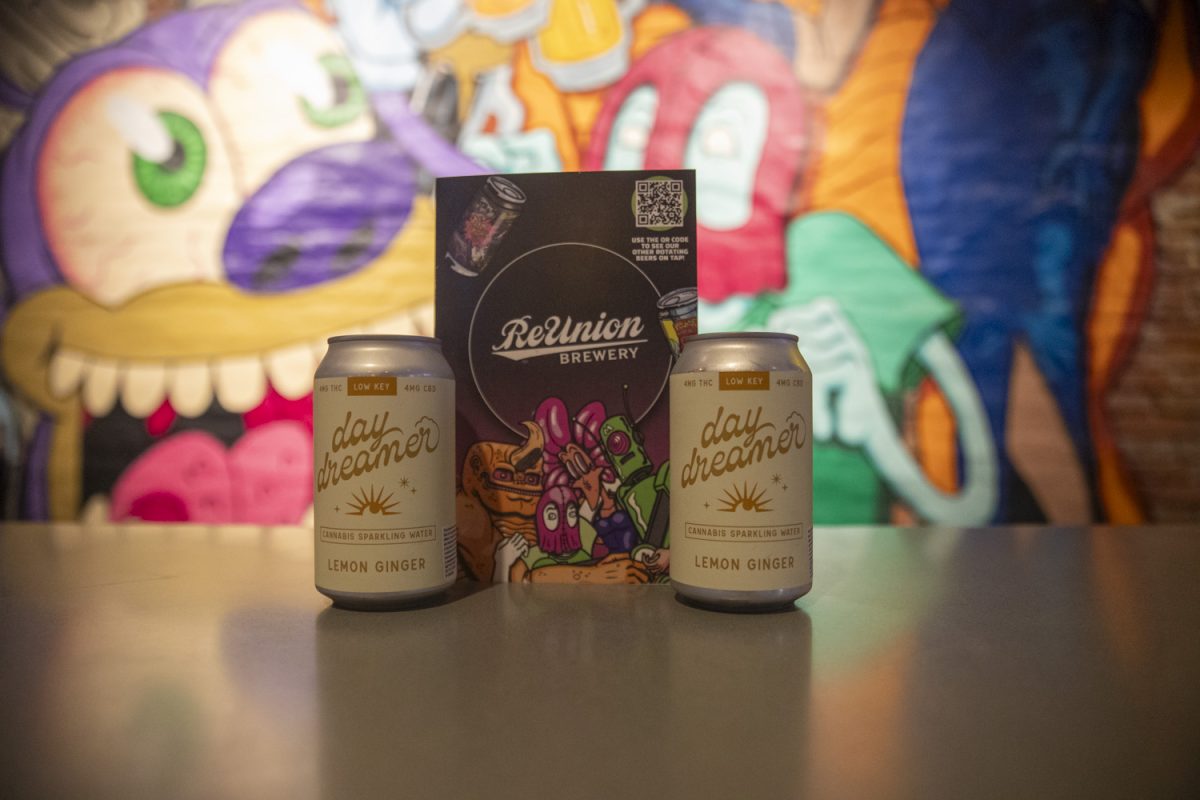Corrective legislation passed in March places limits on certain THC and hemp products. The bill, officially signed into law in May, prohibits retailers in Iowa from selling THC products with more than four milligrams per serving or 10 per container.
The law addresses a loophole in the 2018 federal farm bill that allowed THC-infused drinks to be sold with up to 1,000 milligrams per liter.
Most manufacturers did not make drinks with that concentration. However, Iowa City retailers that made eight-milligram drinks were left with unusable products and thousands of dollars in wasted investment.
ReUnion Brewery in Iowa City is one establishment that sells THC-infused drinks. At one point, it was making its own, but the business quickly found they could not be sold under the new law.
Kris Mondanaro, chief operating officer at the Iowa City ReUnion Brewery, said the products in development would incur an $8,500 fine at each eligible location if they were sold without the proper dram shop insurance.
Mondanaro said this effectively took ReUnion out of the THC seltzer business. They now only sell THC drinks made by other companies that meet the regulations.
“Had we made the decision to pre-label our cans, we would’ve already invested in those products, but we found out just in time to pull the plug,” she said.
She said ReUnion would have incurred $26,000 in total additional costs if they’d chosen to sell the seltzers.
She said restaurant locations, all owned by Jim Mondanaro, that carry seltzers have seen a drop in sales, but more casual environments like Bread Garden, she said, have not faced a similar drop.
This is a situation in which certain government interventions in a market limited the number of participants and innovation. She said ReUnion is now uninvolved in the overall THC-seltzer market in the area.
“We don’t have a stake in the game other than selling other people’s seltzers,” she said.
Dan Caraher, director of operations at Field Day Brewery in North Liberty, said since the law went into effect, Field Day has lost 75 percent of its SKUs, which refers to a count of inventory. This is because Field Day had already produced seltzers that could not be sold.
However, Caraher said the law has not caused an excessive burden on their sales.
“In no way have we been devastated, but it did impact sales,” he said.
Despite the law impacting what Field Day is able to produce and sell, Caraher believes it is a useful piece of legislation to ensure people are safe.
“The regulations we have been [meeting] for age restrictions and milligram caps are good so we can ensure the safety of people here,” Caraher said.
RELATED: Iowa House passes bill to regulate the amount of THC in consumable hemp products
Big Grove Brewery, a restaurant and brewery with locations in Iowa City, Solon, Cedar Rapids, and Des Moines, sells a THC seltzer called Climbing Kites.
Climbing Kites is a “strategic partnership” between Big Grove and Lua Brewing, the originating brewpub in Des Moines, Climbing Kites Brand Manager Nick Iversen said.
Iversen said the law directly impacted Climbing Kites’ top-selling 10-milligram seltzer, among its other products.
“We had to reformulate our recipe and change the packaging to be legal,” he said.
Various retail locations also needed attention to comply with the legislation, he said, including John’s Grocery in Iowa City, New Pioneer Food Co-op, which has locations in Johnson County and Cedar Rapids, and more prolific locations like Fareway Grocery.
Iversen said Lua Brewing and Climbing Kites Co-Founder Scott Selix was primarily responsible for working with legislators during the company’s litigation because of the effect on their business. Field Day was also involved in the litigation, which ultimately did not favor the plaintiffs.
Like Field Day in North Liberty, Iversen said Climbing Kites is conscious of the emulsion concentration, or milligrams per serving, in their products. The law was passed to address cases of individuals abusing a loophole, but Climbing Kites was already crafting and selling their beverages responsibly, he said.
“Potency has been driving the market,” he said. “We’ve seen high demand for 10-milligram products, and that’s really the limit that we feel in a 12-ounce can is responsible.”



